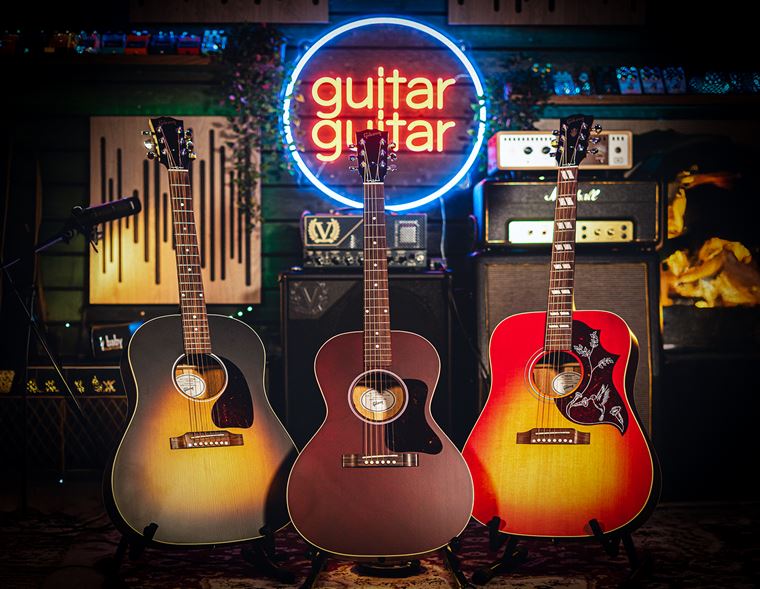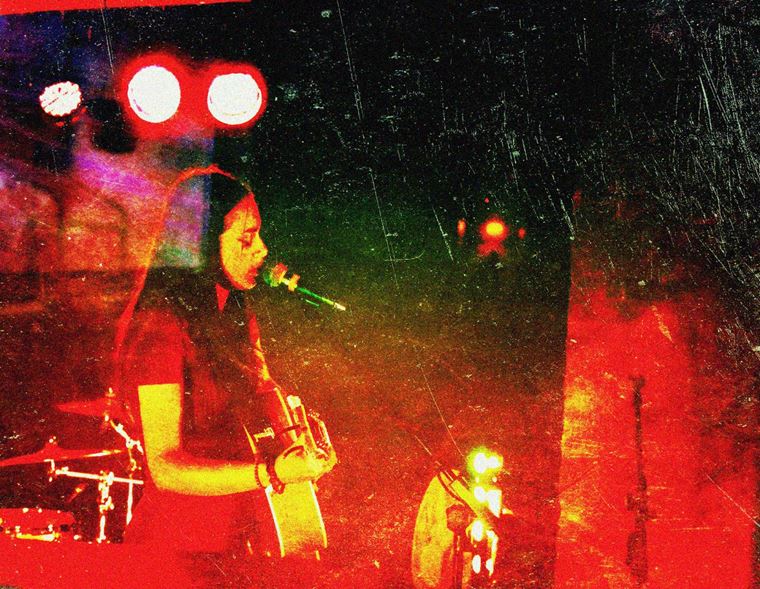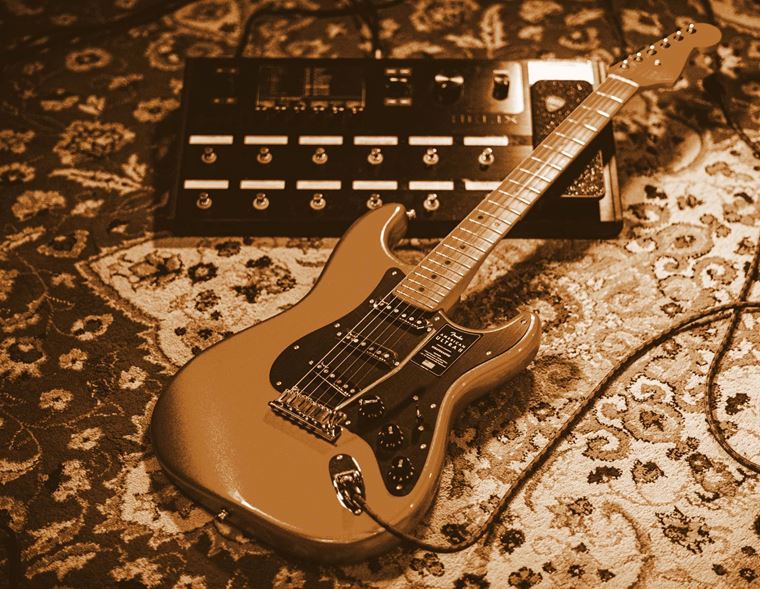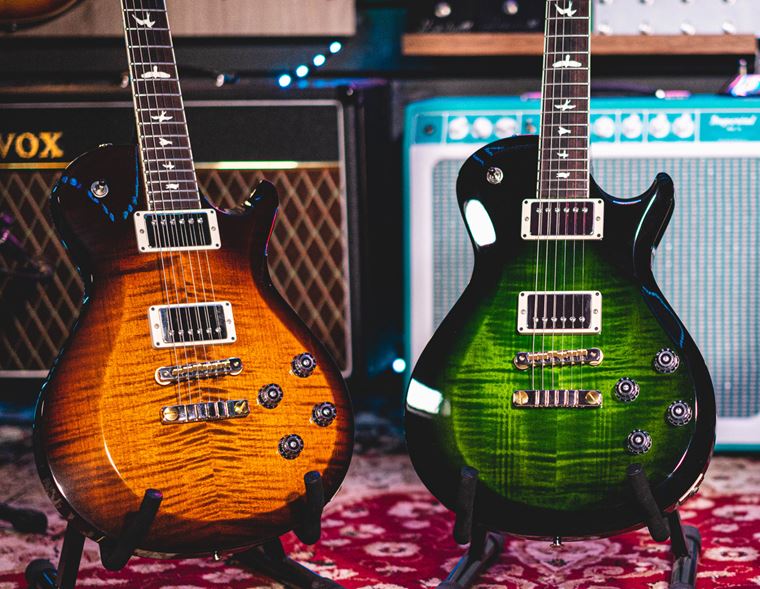International Bands Who Don’t Sing in English
Published on 16 April 2025
It’s International Guitar Month! Who have you been listening to?
The same old stuff you always put on? Right, time to read this blog.
Last week in the blog, I chatted about bands from across the world who sang in English. These artists were from Sweden, Norway, Spain, Brazil, France and a number of other places, but they all chose English as their musical language.
But what about the reverse of that? What about the bands who have gained international fame without leaving their native tongue behind? There are obviously loads of bands who don’t use English in their music, but not too many of them become a big deal all over the world.

Today, I’m going to check a few of these bands/artists out, and see if I can figure out what makes them so good at communicating (after all, that’s what music is in its purest form) even though there can be a language barrier. I'm mainly going for bigger bands - since their success is partly what I’m interested in - but there are some little ‘easter eggs’ in here too: bands that are just too interesting not to include!
So: are you ready to hear some awesome music or what?
The Bands at a Glance
Rammstein
They are an obvious first choice, but when you think about it, these terrifying teutonics are probably the least likely band to ever make it as massively as they have!
Don’t get me wrong, I absolutely love Rammstein (and have done ever since I heard them in David Lynch’s Lost Highway movie) but on paper, they’re quite a hard sell for your everyday person on the street: breezeblock metal riffs, techno keyboards and stark, hostile German baritone vocals? With songs that are densely operative narratives about cannibals and sexual subversion?
It’s not exactly lighting up the ‘obvious megahit’ brain cells, is it? And yet Rammstein are an awesome proposition, with enormous music, flawless execution and a very canny sense of their own aesthetic and brand.
And Till Lindemann’s voice is one of the heaviest instruments in metal. Perhaps the quality is just undeniable; maybe they had an extremely fresh sound, which has also aged particularly well, despite the odds. They certainly couldn’t have lasted this long on novelty alone. Whatever the secret sauce is, Rammstein have it, and das schmeckt gut!
Sigur Rós
Iceland’s Sigur Rós almost singlehandedly started a revival of ‘whale music’ when their second album, Ágætis Byrjun, was released in the late 90s. Guitars played with violin bows and tons of reverb, songs that were glacial in both pace and texture, and vocals that were sung in a made-up language known at the time as ‘hopelandish’...Sigur Rós were almost heroically out of step with everything else that was around at the time. It was very easy to be enraptured by their sound.
This was before their music was used in endless BBC nature documentaries, by the way. Since then, Sigur Rós have expanded their lexicon to include regular Icelandic alongside the Hopelandish (which is Volenska in Icelandic), but to my knowledge, there’s been no English. They don’t need it! With music so obviously beautiful, all they needed was the right level of exposure to take them where they deserved to be.
Warduna
If a band can ‘be metal’ without a distorted guitar or drum kit in sight, then Warduna are metal. The Norwegian group play a particularly atmospheric take on Norse ‘Pagan Nature Folk’, or some other descriptive term for what seems an ancient tradition.
In fact, the songs and compositions are all new, and even though they got their big break soundtracking the Vikings TV show, they prefer not to refer to themselves as ‘Viking music’. Their sound uses particularly unorthodox instruments, and is sung in a combination of languages: Nynorsk (one of Norway’s two official languages), Old-Norse and Proto-Norse, both of which are ancient Germanic languages.
Sounds pretty ‘Viking’ to me! It’s a thrilling sound though, and one best heard live.
Fun fact: ‘Wardruna’ is Norwegian for ‘She Who Whispers’. And here was me thinking it was about war drums! They speak to the warrior poet that solemnly lives within us all, no matter how secret we keep them.
Hoplites
Have you ever heard a Chinese band who sing in Ancient Greek? Me neither, until I stumbled on Hoplites and realised that this world of ours is a far more mysterious and interesting place than the mainstream media would have you think.
A hoplite is a type of footsoldier from the days of Alexander the Great. Here, the band name ‘Hoplites’ is actually even spelled out in Ancient Greek, which I can neither read nor recreate for you today. The authenticity is impressive though! You should know, for example, that Ancient Greek is more complex than boring old regular Greek, with different pronunciations and so on.
As I say: authentic!
It’s all the work of one man, Liu Zhenyang, a one-time linguistics student who clearly understood that Ancient Greek was the toughest sounding language ever. The music is anything but ancient though; it’s super-intense metal that does not let up.
Imagine going through your life never knowing about the Chinese linguistics master who makes abrasive metal music and sings it in Ancient Greek?
Cocteau Twins
This one is a slight cheat, but I hope you’ll allow me to include them!
It’s hard to believe that the heavenly sounding Cocteau Twins came out of the industrial smoke and lights of Grangemouth, but I’m glad they did! Their gorgeously haunting sonics are like no other band’s, and Liz Fraser’s transcendent signing is ethereal perfection.
But are the songs sung in English? And if not, what language is it?
The answer is…yes…no…sort of.
Some Cocteau Twins songs are indeed sung in English, though far less than you’d presume (check out Pearly Dewdrops’ Drops). Most lyrics are a mixture of English, foreign languages, found words, glossolalia (language-like sounds) and some are even more inventive: listen to Violaine and you’ll hear that the words are actually English sung backwards!
It seems that Frazer just has a thing for the sounds of certain words on their own merits, as she says herself:
“I get a bug for words. But I don’t know what any of them mean. I just pull them out of foreign languages books and stuff like that. The music and the singing and the words created a feeling, and I had a freedom doing this that I didn’t have singing English. I just didn’t have the courage to sing in English.”
The Hu
Not that old band with Roger Daltrey, but in fact a bunch of horseriding, sword wielding maniacs from Mongolia who play anthemic folk-metal.
The Hu are one of these folk-inflected bands we see a lot of these days, who speak to the universal in us all. It's rather like Warduna in that sense, albeit in a more directly metal manner. The Hu incorporate war chants, lyrics about Genghis Khan (of course) and Mongolian Sky Gods into their songs. They wear ancient looking battle gear as they traverse mountain vistas on those aforementioned horses.
It’s triumphant, it’s over-the-top and there’s a nice blend of the historical and the modern. You know you’re going to love them.
Tinariwen
If you haven’t checked out Saharan Desert blues, then you are missing out on some very special music. Mali is incredible for music in a variety of forms, and Tinariwen are one of their major exports, hailing from an area called Azawad, which straddles northern Mali and southern Algeria.
A collective of Tuaregs who do actually spend a lot of time in the desert, Tinariwen have been active for over 4 decades now, blending their silvery, snake-like riffs around deep drum grooves and vocal chants, all sung in Tamasheq. Even the name ‘Tinariwen’ translates as ‘People of the Deserts’.
Their music is hypnotic and very addictive, full of the joy and longing these people feel for their homes. They’ve also won three Grammy awards and tour frequently over here, so it’s not actually too hard to see Tinariwen perform live!
Dead Can Dance
I’ve said it before, but there really isn’t another band in the world like Dead Can Dance. The Australian/Irish band are so singular in their sound, approach to music and production, that uniqueness flows from every note.
Dead Can Dance are (or were, depending on what you’ve heard) two people. One of them is Lisa Gerard, whose vocals you definitely heard in the movie Gladiator. The other is Brendan Perry, whose musical curiosity and baritone voice provides an otherworldly anchor for Gerard's masterful vocal odysseys.
Sharing lead vocal duties, Perry often sings in English, but Gerard almost never does. Instead, she (and often Perry, too) use the ‘language of the heart’ as he puts it, to perform a type of glossolalia that is intensely emotional and based on no particular language.
Ulver
Back to Norway now, but Ulver’s vocalist Kristoffer Rygg does more than sing in Norwegian. There are intense screams, long vocal passages of notes and textures that certainly come from the guy’s voicebox but cannot reasonably be called ‘a language’.
Ulver (Norwegian for Wolves) are similarly hard to classify, with a sound that I can only really describe as ‘experimental and slightly horrific electronic music’. In other words, well worth checking out!
Magma
No conversation about non-English languages in music can be complete without mention of Magma. Now, I can barely cover 1% of this band’s story here, so if you are interested, please delve further.
Magma are French, and have been active since 1969. They invented a term for their musical style - Zeuhl - and they invented their own language, known as Kobaïan, to use in their songs. This is based around a narrative (Kobaïa is a fictional planet that Earthdwellers escape to) that the band have written much of their work around.
Indeed the Kobaïan language prevails whether Magma are actually singing about that storyline or not! Magma’s commitment to the linguistic cause is pretty incredible, as is their dedication to play the industry on their own terms.
Language is Music
So, there are a few bands for you, who have achieved success without singing in English. I’d grant you that some are more obviously successful than others, but if somebody in Glasgow (me) has heard of a Chinese guy playing metal with Ancient Greek lyrics then I’d say he’s doing pretty well for me to notice away over here, right?
I hope today’s blog has introduced you to some cool music that you might not have searched for otherwise. Believe me when I tell you it’s the tip of the iceberg! Songlines magazine is a great place to find more blatantly ‘folkie’ and ‘world music’ examples, though maybe not so much for the heavy stuff.
What I have noticed over the years as a music fan is actually how open and receptive the metal community is to things that lie slightly beyond their sphere of interest. Maybe that’s why so many internationally successful bands are on the heavier side of the sonic scales?
The best take away from all of this - in my humble opinion - is that there is a huge amount of absolutely brilliant music for you out there, just waiting for your ears to discover them.
Take the path less travelled once or twice a week - that’s one thing that Spotify’s good for - and find some musical gold from all over the world.
Enjoy!












